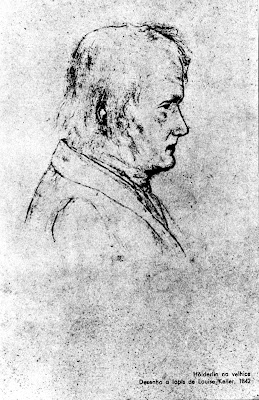Popper estava errado
Popper insists that Freud's theories cannot be falsified and therefore are not scientific, whereas Eysenck claims that Freudian theories can be falsified and therefore are scientific. Grünbaum takes Eysenck's argument one step further to claim that Freud's theories are scientific but have been proven wrong and are simply bad science. I believe that psychoanalysis is a scientific theory due to the fact that it is falsifiable and has, in fact, been proven false. Other methods of treatment, such as cognitive and behavioral therapy, have been proven effective in many instances, and this illustrates that psychoanalysis is not the only option for the treatment of neuroses and mental illnesses.
Although I agree that the criticisms mentioned by the author are noteworthy, I believe that the many criticisms of Freud's evidence and technique must not be overlooked in the evaluation of his theory. First, many critics of Freud's evidence contend that Freud's theory lacks empirical data and relies too much on therapeutic achievements, whereas others maintain that even Freud's clinical data are flawed and inaccurate. Second, Freud's use of free association and dream interpretation in treatment have been heavily criticized by many reviewers. In my opinion, these two criticisms are very important.
(...)
After all, Freud and his theories have been criticized on almost every level, yet I think the controversiality of his theory is perhaps its greatest strength. As a direct result of Freud's theory, additional psychological theories and hypotheses have been developed that otherwise may have been missed. This, in my opinion, is by far the greatest achievement of Freud and his theory.
Um artigo sobre a crítica de Popper a Freud:
Don C. Grant, Edwin Harari, "Psychoanalysis, science and the seductive theory of Karl Popper"
Objective: To present a critique of the ideas of Karl Popper, the philosopher of science, whose depiction of psychoanalysis as a pseudoscience is often used to justify attacks on psychoanalysis.
Method: Published sources are used to provide a brief intellectual biography of Popper, a summary of his concept of science and a summary of criticisms of Popper's view of science. His depiction of psychoanalysis and Freud's reply are presented. Clinical, experimental and neurobiological research which refutes Popper's view is summarized.
Results: There is a vast scholarly published work critical of Popper's falsifiability criterion of science. Less recognized is Popper's misunderstanding and misrepresentation of psychoanalysis; his argument against it is logically flawed and empirically false. Even if Popper's theory of science is accepted, there is considerable clinical, experimental and neurobiological research in psychoanalysis which meets Popper's criterion of science.
Conclusion: Attacks on psychoanalysis based on Popper's theory of science are ill-founded and reflect inadequate scholarship.Australian and New Zealand Journal of Psychiatry 2005; 39:446–452
Although I agree that the criticisms mentioned by the author are noteworthy, I believe that the many criticisms of Freud's evidence and technique must not be overlooked in the evaluation of his theory. First, many critics of Freud's evidence contend that Freud's theory lacks empirical data and relies too much on therapeutic achievements, whereas others maintain that even Freud's clinical data are flawed and inaccurate. Second, Freud's use of free association and dream interpretation in treatment have been heavily criticized by many reviewers. In my opinion, these two criticisms are very important.
(...)
After all, Freud and his theories have been criticized on almost every level, yet I think the controversiality of his theory is perhaps its greatest strength. As a direct result of Freud's theory, additional psychological theories and hypotheses have been developed that otherwise may have been missed. This, in my opinion, is by far the greatest achievement of Freud and his theory.
Um artigo sobre a crítica de Popper a Freud:
Don C. Grant, Edwin Harari, "Psychoanalysis, science and the seductive theory of Karl Popper"
Objective: To present a critique of the ideas of Karl Popper, the philosopher of science, whose depiction of psychoanalysis as a pseudoscience is often used to justify attacks on psychoanalysis.
Method: Published sources are used to provide a brief intellectual biography of Popper, a summary of his concept of science and a summary of criticisms of Popper's view of science. His depiction of psychoanalysis and Freud's reply are presented. Clinical, experimental and neurobiological research which refutes Popper's view is summarized.
Results: There is a vast scholarly published work critical of Popper's falsifiability criterion of science. Less recognized is Popper's misunderstanding and misrepresentation of psychoanalysis; his argument against it is logically flawed and empirically false. Even if Popper's theory of science is accepted, there is considerable clinical, experimental and neurobiological research in psychoanalysis which meets Popper's criterion of science.
Conclusion: Attacks on psychoanalysis based on Popper's theory of science are ill-founded and reflect inadequate scholarship.Australian and New Zealand Journal of Psychiatry 2005; 39:446–452


Comentários